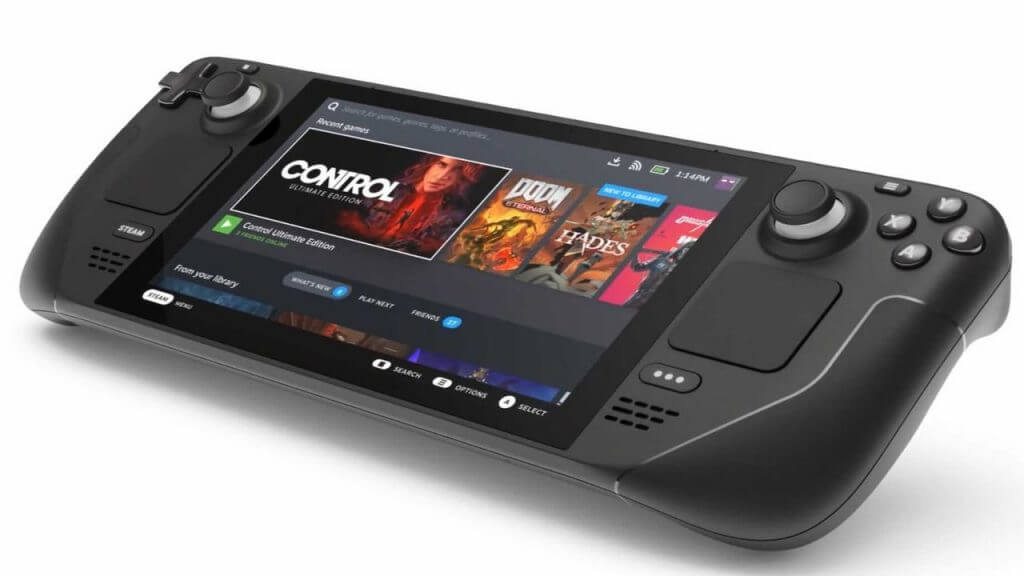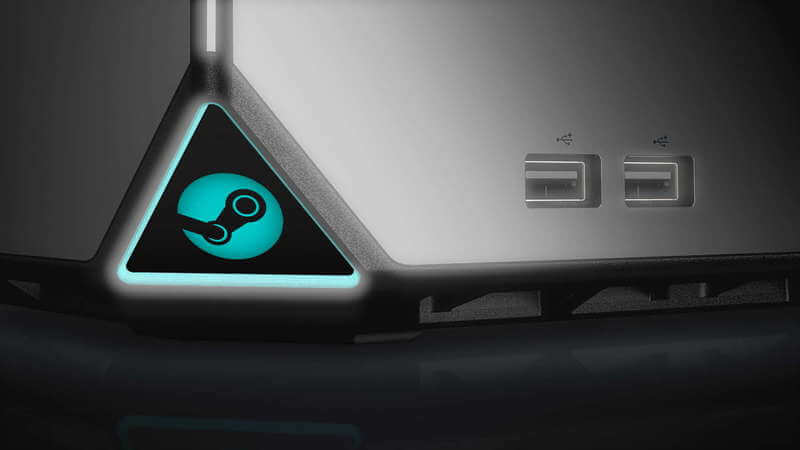Valve is intent on continuing to make Steam Deck devices in the same handheld category – according to the hardware’s designer, Greg Coomer.
This comes as no big surprise, especially considering Gabe Newell had stated previously that one of the Steam Deck device’s main aims was “to be establishing a product category that ourselves and other PC manufacturers are going to be able to participate in.” Greg Coomer’s words match what Valve’s boss had to say in a recent interview with PC Gamer.
The Steam Deck’s designer said that Valve is “hopeful that this category becomes an actual category where there are multiple choices within it” and that they “intend to continue making devices in this product line. ”
But we also think it makes sense for other people to fill this space. So, if we’re right about that, then there will be more choices within the category, where other manufacturers are participating, making handheld PC gaming units themselves, and calling them something else.”
It’s fair to say that Valve has learned plenty from their Steam Machine days – a device that can largely be considered as a failure. Back then, Valve had to be completely reliant on third parties (PC manufacturers) to make those pieces of hardware. Steam Machines were marketed as SteamOS-only gaming PCs, a fact that proved to be a deterring one for many consumers. Valve’s intended vision for the Steam Machine didn’t quite work out: SteamOS took too long to be fully realized. This pushed Valve’s manufacturing partners into shipping out Steam Machines using Windows instead.
Steam Deck: Valve Shows The Way Forward
Those days are behind Valve now, with the company focusing on building up its own hardware and software at the same time. As mentioned previously, Gabe Newell has already made it clear that Valve doesn’t want to hold some form of market monopoly. The firm merely intends to pave the way for competitors to follow suit, with them bringing in their own tweaks and ideas. Coomer goes on to say that other manufacturers “might want to, for example, make a version of this highly tuned for long battery life and streaming games from another PC, which is a pretty interesting product. And, you know, it’s just one version that we’re not planning to do right away, that somebody else might want to… Lower cost, higher battery, very different architecturally, technically.”
If we’re being a little more cynical here, it does make sense that Valve would want others to dabble into the PC handheld niche. More competitors getting into this would mean more consumers getting into PC gaming – which, in turn, will likely benefit Valve due to Steam‘s omnipresence in the market. After all, even if the Steam Deck device ends up being a smash hit, there’s no denying that Valve’s biggest revenue stream will still remain the Steam store – by miles. If you’re interested in learning about the key differences between the Steam Deck and the Nintendo Switch, check out our comparative article.
Regardless of their true intentions, competition will always be a healthy thing: for innovation, certainly, but also for prices.








